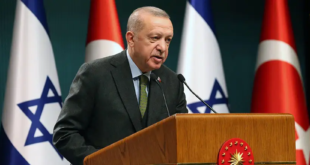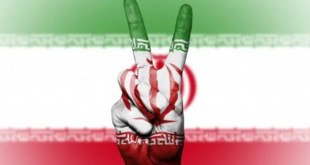UNITED NATIONS (AP) — The UN Security Council gave strong backing to the Lebanese government’s fight against gunmen holed up in a Palestinian refugee camp and reiterated its “deep concern” about mounting evidence that arms are being smuggled across the border from Syria.The council adopted a statement after a briefing by Terje Roed-Larsen, the UN envoy for Lebanon-Syria issues, who expressed “alarm” at reports by the Lebanese army and observers that both arms and gunmen are crossing the border from Syria to Lebanon.
“It seems today that the greatest obstacle to stabilising the fragile situation in Lebanon is precisely the very presence of these groups and the build-up which we unfortunately are witnessing,” he told reporters afterward.
The Security Council met and adopted the statement on the day a tribunal to prosecute those responsible for the assassination of former prime minister Rafik Hariri came into effect. The council gave Lebanon’s deeply divided parliament until June 10 to ratify the statutes to establish the tribunal. Lebanon did not, so the court was automatically established by the Security Council.
The issue of the tribunal has sharply polarised Lebanon. It is at the core of a deep political crisis between the Western-backed government led by Prime Minister Fuad Siniora and the Syrian-backed opposition led by Hizbollah.
The tensions have taken on an increasingly sectarian tone that has erupted into street battles in recent months, killing 11 people.
At the same time, the Lebanese army is confronting gunmen in the north.
Clashes between the Fateh Islam men and Lebanese troops in the Nahr Bared Camp in northern Lebanon have claimed at least 130 lives since they broke out on May 20.
The fighting — the worst internal violence in the country since the 1975-90 civil war — has dragged on, with the Lebanese army besieging the camp in efforts to uproot the Al Qaeda inspired gunmen inside.
“The council condemns the ongoing criminal and terrorist acts in Lebanon, including those perpetrated by Fateh Islam, and fully supports the efforts carried out by the Lebanese government and army to ensure security and stability throughout Lebanon,” the statement said. Roed-Larsen said the Lebanese government is currently interrogating terrorists arrested for involvement in the recent violence.
Siniora has already said publicly “that there existed links between these gunmen, who entered Lebanon from Syria, and some of the Syrian intelligence services,” he said. “We are awaiting the release of further information from the investigation.” The Security Council reiterated “its deep concern at mounting information by Israel and other states of illegal movements of arms in Lebanon, and in particular across the Lebanese-Syrian border.” Members said they look forward to a report from a UN team currently assessing security along the border.
Roed-Larsen’s report said “the picture that emerges from the Lebanese army report … is that there is a steady flow of a variety of weapons, other provisions and armed elements, across the border from Syria.” He noted that Syrian President Bashar Assad has “has consistently denied reports of illegal arms trafficking through the Syrian-Lebanese border, except for individual incidents” and has pointed to his country’s efforts in enforcing the UN weapons embargo.
Syria’s UN Ambassador Bashar Ja’afari called Roed- Larsen biased, saying “he has always aimed at escalating the Syrian-Lebanese relationship, at aggravating the situation, rather than at calming the situation.” “Those who would benefit from this tension are those who are working against the sovereignty of Lebanon, … the territorial integrity of Lebanon and the unity of Lebanon. Of course, Israel is in far front of these powers,” he said. Roed-Larsen told the council, however, that “there is concern about allegations of widespread re-arming and the possibility of renewed fighting among the Lebanese.” “What we have seen in Nahr Bared, in Ein Al Hilweh [refugee camp], and in Beirut and its surroundings may well have been only an opening salvo,” he warned. Roed-Larsen briefed the council on the 2004 resolution that called for disarming all militias in the country and extending Lebanese authority throughout the southern region. The resolution is linked to another adopted at the end of last summer’s 34-day Israel-Hizbollah war that banned arms smuggling.
According to the Lebanese army, Roed-Larsen said, weapons produced outside the country are arriving clandestinely in Lebanon on a regular basis.
The Lebanese government “is restricted” in extending its authority throughout the country “in the face of terrorist acts and of the challenge posed by Fateh Islam and other militias,” he said. He cited the Popular Front for the Liberation of Palestine-General Command and Fateh-Intifada, both headquartered in Damascus.
The Security Council reiterated its strong support for Lebanon’s sovereignty and its elected government led by Prime Minister Fuad Siniora.
It expressed regret that all the provisions of the 2004 resolution have not been fully implemented — “particularly the disbanding and disarming of Lebanese and non-Lebanese militias,” strict respect for Lebanon’s unity and political independence, and free and fair presidential elections.
 Eurasia Press & News
Eurasia Press & News



